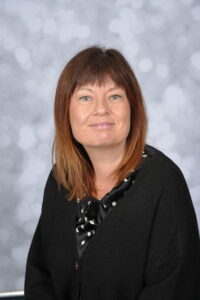Art is an essential subject which opens a gateway of creative opportunities for all pupils to access and to be able to express themselves in a safe and highly creative environment, as well as preparing pupils for life after school. Studying Art as a subject also develops pupil critical thinking and the ability to interpret the world around us; through developing pupil understanding, investigating and knowledge using Art skills, techniques and processes and through studying Artists and Craft workers. Developing pupil literacy and numeracy is also an Art department focus.

Miss A Jones
”Art has the power to transform, to illuminate, to educate, inspire and motivate.
Why is Art Important?
What Will I Learn At Key Stage 3?
Year 7: Theme: ‘Ordinary becomes Extraordinary’ Autumn Term: Units 1 + 2: The Art formal elements: focusing on drawing skills through line, shape, detail and tone. Developing use of Art materials and tone, shading and blending techniques using oil pastels. Artist analysis: The Welsh Artist Rob Piercy Spring Term: Units 3 + 4: The Art formal elements: focusing on Colour Theory, The colour wheel, painting skills: colour mixing and application of paint. Developing painting skills and techniques through The Impressionist artists. Artist analysis: The French Impressionist artist Seurat and The Dutch painter Van Gogh. Developing understanding of abstract Art. Developing design skills. Artist analysis: Abstract American artist Angela Faustina. Summer Term: Units 5 + 6: Developing design skills Application of Art materials in final pieces, inspired by artists studied. Self-analysis of work through written evaluations. Year 8: Theme: Autumn Term: Units 1 + 2: The Art formal elements: focusing on drawing skills through line, shape, detail and tone. Developing use of Art materials and tone, shading and blending techniques using a wide variety of art materials. Developing independent research skills. Artist analysis: The British street artist Louis Masai Michel Spring Term: Units 3 + 4: The Art formal elements: focusing on Colour Theory, The colour wheel, painting skills: colour mixing and application of paint. Developing painting skills and techniques. Re-cycled art and single-use plastic. Developing understanding of abstract Art. Artist analysis: The American re-cycling artist Michelle Stitzlein. Developing painting skills and techniques. Developing understanding of slogans and environmental statements. Artist analysis: Abstract American artist Kruger. Summer Term: Units 5 + 6: The Art technique: Collage. Developing design skills Application of Art materials in final pieces, inspired by artists studied. Self-analysis of work through written evaluations.
How Will I Be Assessed At Key Stage 3?
Years 7 + 8: Baseline assessment at the start of years 7 + 8 to determine pupil level in Art. Interim assessment: assessed continually throughout the course in years 7 + 8 Formative assessment: at the end of the year based on Art final pieces and written evaluations. These assessments cover all three Art skill areas: Understanding, Investigating and Making.
What Will I Learn At Key Stage 4?
There are two courses that are run within Art: GCSE Art and Design and ABC Award in Art and Design. Both courses are very practical and cover a wide variety of Art materials, techniques and processes from drawing and painting through to printmaking and 3D work. Contemporary and historical artists are used to influence pupil outcomes. The main focus of both courses is to further develop pupil independent thinking, research skills and application and use of Art materials and Techniques.
What Topics Are Covered At Key Stage 4?
The theme ‘Surrealism, Dreams and Imagination’ is studied and developed throughout the two years. At the start of the first year Primary sources and Observational studies are developed into personal investigations and final Art pieces inspired by personal research, Surrealist artists and the development of pupil experimentation of Art materials and techniques. The theme ‘dreams’ is studied later on in the course, linking to the Surreal artist work and developing pupil independent and personal view to their Art work. Self-reflection and analysis of own Art work and artists work. The Surreal artists studied: Dali, Magritte and Giorgio de Chirico and pupil personal choice.
How Will I Be Assessed At Key Stage 4?
Interim assessment: assessed continually throughout both GCSE and ABC Award courses, all assessments cover both exam boards assessment criteria. Formative assessment: internally assessed by staff and externally moderated by the exam board. GCSE Art and Design: Coursework: Unit 1: 60% of the overall grade, Exam: Unit 2: 40% of the overall grade. ABC Award: 100% Coursework.
What Facilities Does The Department Have?
A well equipped large Art room with access to a wide variety of Art materials such as watercolour paints, acrylic paints, oil pastels, inks, printmaking resources for press-printing, mono-printing and lino printing, 3D resources ( variety of wire and wire tools), air drying clay and clay tools. Strong links have been established with an Arts Agency, Criw Celf, where working artists come inot school to hold workshops specifically for GCSE and ABC Award pupils.
What Extra Curricular Activities Are There?
After school Art sessions are held on a weekly basis specifically for Art GCSE and ABC Award pupils studying Art.
Online Resources
- Pinterest: https://www.pinterest.co.uk/
- Student Art Guide: https://www.studentartguide.com/
- BBC Bitesize: Art and Design: https://www.bbc.co.uk/bitesize/subjects/z6hs34j